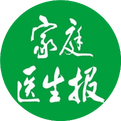
According to the “Shen Nong’s Herbal Classic”, “Ginseng can tonify the five organs, calm the spirit, stabilize the soul, stop palpitations, eliminate evil qi, brighten the eyes, strengthen the heart, and enhance intelligence.” Ginseng is widely regarded as a traditional Chinese medicine with multiple benefits, and it is extensively used in TCM, providing numerous advantages for our bodies. Therefore, many people consider using it to replenish their health.
However,many individuals exhibit a tendency to use medicine indiscriminately without understanding their body constitution, and recklessly tonifying without differentiation can lead to an imbalance of yin and yang, which may harm the body.

Who Should Take Ginseng?
1. Individuals with Yang Qi Deficiency Often experience clear nasal discharge, cold hands and feet, frequent clear urination, nocturia, loose stools, and impotence. They can consume ginseng to boost Yang Qi, dispel cold, and strengthen their constitution.
2. Individuals Prone to Illness Such as those with chronic bronchitis, frequent urination, frostbite, etc., which are symptoms of kidney qi and kidney yang deficiency. The best method for prevention and treatment is warming and tonifying.
3. Asthma and Ulcers Asthma patients often have lung deficiency with cough and wheezing. Ginseng has the effect of tonifying the spleen and lung, and generating fluids, so asthma patients can alleviate lung deficiency symptoms by taking ginseng.

How to Best Consume Ginseng
1. Infusion with Boiling Water First, rinse the ginseng slices with cool water, place them in a cup, and then pour boiling water over them to consume. Alternatively, boil water in a pot, add the ginseng slices, and simmer for a short while. Generally, after infusing several times, the flavor becomes milder, and finally, the ginseng slices can be chewed.
2. Soup Preparation Slice the ginseng thinly and add 5 grams to soup each time. Consume once daily.
3. Alcohol Infusion Method Take 30 grams of ginseng and place it in a clean container, soak it in 500 milliliters of rice wine, seal it for 7 days before use. Consume 20 milliliters twice daily on an empty stomach. Refill the alcohol as needed, and when the flavor becomes mild, consume the ginseng.
4. Sublingual Administration Steam the whole ginseng in a rice cooker to soften it, then slice it thinly and place it in a glass bottle. Take one slice at a time, consuming 2-4 grams daily, and chew it thoroughly on an empty stomach before breakfast.
5. Stewed Consumption Slice the ginseng and soak 2-5 grams in a porcelain bowl with an appropriate amount of water for 3-5 hours. Seal the bowl and steam it in a pot for 20-30 minutes, consuming it half an hour before breakfast.

Precautions
1. During the three days before and after taking ginseng, including the period of consumption, avoid eating radishes, tea, and coffee.
2. If experiencing cold, diarrhea, cough, or fever, with a thick and greasy tongue coating, suspend ginseng consumption.
3. Newborns should not take ginseng, as it may cause irritability, crying, and convulsions.
4. Young adults with strong blood and qi should avoid ginseng soup, as it may lead to dry mouth, nasal bleeding.
5. Middle-aged and elderly individuals should take ginseng in moderation; more is not necessarily better.
Author:Li Yiwen, Deputy Chief Pharmacist, Emergency General Hospital
Correspondent: Mo Peng
Editor: Ye Xin
Proofreader: Xie Tao
Issued by: Dai Lihong
Images: Some images in this article are sourced from the internet, and copyright belongs to the original authors. Please contact us for removal if there is any infringement.。


Follow Us
Follow us



